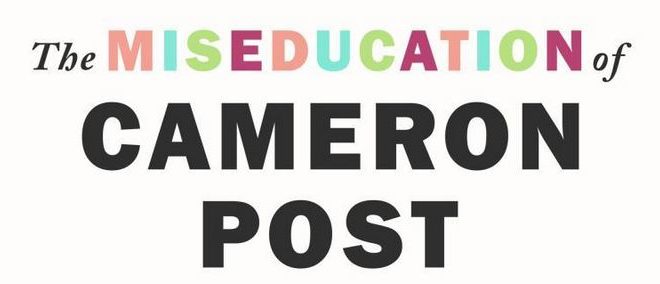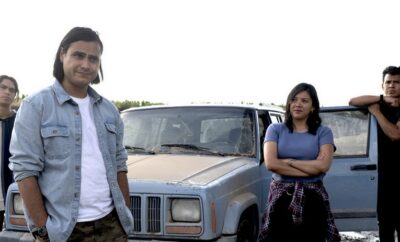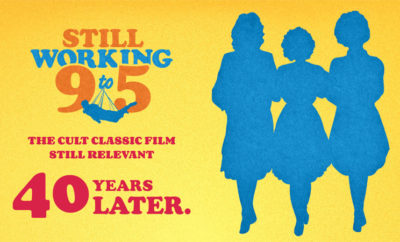
Movie Reviews
The Miseducation of Cameron Post
By Jennifer Verzuh
It’s a bit early in the year, but I have no qualms stating that The Miseducation of Cameron Post will be one of the most important and emotional films of 2018. I left it far more affected than I anticipated I would be, as did I believe the majority of the audience where it screened this week at the Tribeca Film Festival. From director and co-writer Desiree Akhavan, it’s an incredibly sensitive and poignant film that’s also punctuated with surprisingly effective bursts of humor and heart. It tells the story of teenager and orphan Cameron Post (an excellent Chloe Grace Moretz) who, after being caught having sex with a close female friend, is placed by her aunt in a Christian conversion therapy camp in the early nineties with other teens. The camp’s ultimate goal is to identify the source of your same sex attraction and overcome it.
This film could have so easily been a romance, as in 1999’s But I’m a Cheerleader. In fact, I was convinced it was heading in that direction. But it didn’t and it’s so much better because of that. Yes, it is Cameron’s relationship with her best friend/secret girlfriend that has landed her in the camp; however, as is her newfound connection with fellow camper Jane Fonda (played with great energy by American Honey’s Sasha Lane), the focus of the film is about coming to terms with your identity and the insane difficulties of learning to love yourself when your family and religion won’t. And rightfully so.
Additionally, the film is one of the best and warmest depictions of friendship between LGBT individuals that I’ve seen on the big screen. It’s surprisingly rare how few movies bother to showcase the strong bonds many queer people form with each other outside of romance. It’s in these platonic relationships within the LGBT community that many people, myself included, find support and the confidence to be one’s self. These kids validate and show compassion and understanding to each other when no one else (not even their parents) will. It’s a beautiful, but also slightly heartbreaking thing to see.
Moretz has been a fixture in Hollywood since her childhood, but this role feels like a departure for her and in a good way. It’s her most mature and thoughtful performance to date. Considering she is the protagonist of the film we rarely actually hear from her. She’s fairly quiet throughout, to the frustration of other characters at times, giving Moretz the challenging prospect of conveying her character’s feelings in other way. Through her eyes alone she miraculously is able to show exactly what she’s experiencing. There’s a lot of pain here and her ability to reflect that with a glance and the director’s ability to capture it is really something special.
The entire cast is incredible though. Thanks to a strong script and good casting each teen there feels remarkably authentic and with a unique story and hardships of their own. Particular standouts are Lane, Forrest Goodluck and Owen Campbell, all of whom I can’t wait to see more of. It’s also worth noting that while the film does have a cis white protagonist, it thankfully includes a more diverse cast of people of color surrounding her and gives them agency and arcs that don’t just revolve around Cameron.
Additionally, the script doesn’t forget that these are kids after all either. They make jokes, sing along to their favorite songs on the radio, get horny and smoke pot. But every time we experience a moment of levity and let ourselves laugh, something comes along to break our hearts and infuriate us, reminding the viewer that this isn’t a summer camp they’re attending. They’re undergoing emotional and mental abuse under the guise of therapy. As Cameron explains at one point, frustratingly to an outside investigator who comes to determine whether any child endangerment is occurring, it doesn’t matter that they’re not being physically harmed by the staff. They’re being taught to hate themselves so doesn’t that that constitute abuse?
The film takes the clear (and of course rightful) position of decrying and criticizing conversion therapy and pointing out the hypocrisy of the supposedly religious counselors. But more than anything, though, it takes aim at the parents who brought their children there – the ones who saw their sons’ and daughters’ sexuality as an illness to be fixed. And it suggests that real family, as Cameron begins to find in her new friends there, are the people who love you as you are because everyone deserves that. It’s perhaps a simple message, but one that LGBT people (particularly kids) can’t hear enough.





You must be logged in to post a comment Login